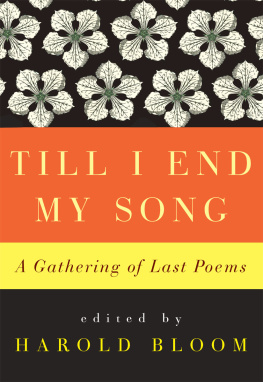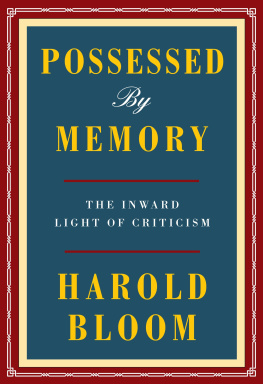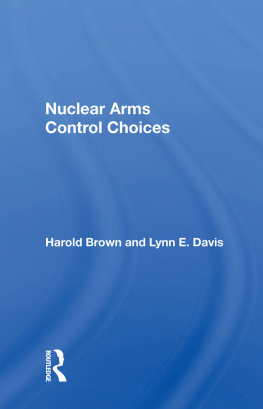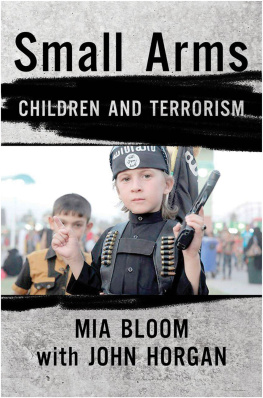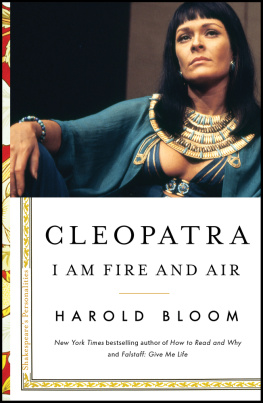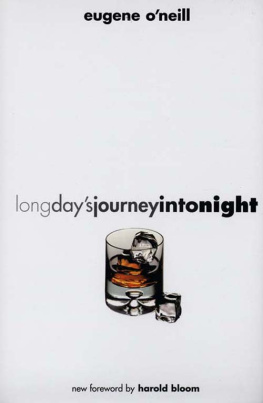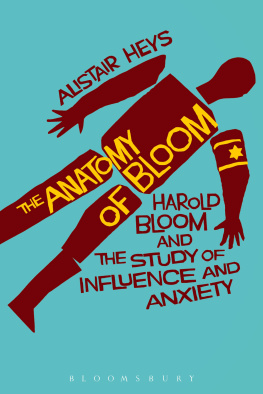Harold Bloom - Take Arms Against a Sea of Troubles
Here you can read online Harold Bloom - Take Arms Against a Sea of Troubles full text of the book (entire story) in english for free. Download pdf and epub, get meaning, cover and reviews about this ebook. year: 2000, publisher: Yale University Press, genre: Art. Description of the work, (preface) as well as reviews are available. Best literature library LitArk.com created for fans of good reading and offers a wide selection of genres:
Romance novel
Science fiction
Adventure
Detective
Science
History
Home and family
Prose
Art
Politics
Computer
Non-fiction
Religion
Business
Children
Humor
Choose a favorite category and find really read worthwhile books. Enjoy immersion in the world of imagination, feel the emotions of the characters or learn something new for yourself, make an fascinating discovery.

- Book:Take Arms Against a Sea of Troubles
- Author:
- Publisher:Yale University Press
- Genre:
- Year:2000
- Rating:5 / 5
- Favourites:Add to favourites
- Your mark:
- 100
- 1
- 2
- 3
- 4
- 5
Take Arms Against a Sea of Troubles: summary, description and annotation
We offer to read an annotation, description, summary or preface (depends on what the author of the book "Take Arms Against a Sea of Troubles" wrote himself). If you haven't found the necessary information about the book — write in the comments, we will try to find it.
Take Arms Against a Sea of Troubles — read online for free the complete book (whole text) full work
Below is the text of the book, divided by pages. System saving the place of the last page read, allows you to conveniently read the book "Take Arms Against a Sea of Troubles" online for free, without having to search again every time where you left off. Put a bookmark, and you can go to the page where you finished reading at any time.
Font size:
Interval:
Bookmark:
TAKE ARMS AGAINST A SEA OF TROUBLES
The POWER of the READERS MIND over a UNIVERSE of DEATH
HAROLD BLOOM

Published with support from the Fund established in memory of Oliver Baty Cunningham, a distinguished graduate of the Class of 1917, Yale College, Captain, 15th United States Field Artillery, born in Chicago September 17, 1894, and killed while on active duty near Thiaucourt, France, September 17, 1918, the twenty-fourth anniversary of his birth.
Published with assistance from the foundation established in memory of Philip Hamilton McMillan of the Class of 1894, Yale College.
Copyright 2020 by Harold Bloom.
All rights reserved.
This book may not be reproduced, in whole or in part, including illustrations, in any form (beyond that copying permitted by Sections 107 and 108 of the U.S. Copyright Law and except by reviewers for the public press), without written permission from the publishers.
Yale University Press books may be purchased in quantity for educational, business, or promotional use. For information, please e-mail (U.K. office).
Set in Janson type by Westchester Publishing Services.
Library of Congress Control Number: 2020933182
ISBN 978-0-300-24728-2 (hardcover : alk. paper)
A catalogue record for this book is available from the British Library.
This paper meets the requirements of ANSI/NISO Z39.48-1992 (Permanence of Paper).
TAKE ARMS AGAINST A SEA OF TROUBLES
Deep Reading and Dr. Samuel Johnson. Angus Fletcher. Poetic Thinking and Poetic Awareness. William Blakes Idiot Questioner. Miltons Satan and Hamlet. Poetic Thinking: Nietzsche and Vico.
IN WHAT SENSE DOES deep reading augment life? Can it render death only another hoyden? Most literary representations of death do not portray her as being particularly boisterous. Why her? Is it the long cavalcade associating death and the mother?
I have learned from Epicurus and Lucretius what Epicurus stated so pungently in his letter to Menoceus (late fourth century BCE ):
So death, the most terrifying of ills, is nothing to us, since so long as we exist, death is not with us; but when death comes, then we do not exist. It does not then concern either the living or the dead, since for the former it is not, and the latter are no more.
That does not abate my sorrow for the beloved dead, or requite my loneliness for my many departed friends, yet it holds off any fears about my own vanishing. I do not want to fall yet once more and break another hip or leg, or even a rib, but a Keatsian ceasing on the midnight with no pain would not trouble me. When I say to myself and to others that reading helps in staying alive, I am aware that I am being metaphorical. Returning to Dante or Milton will not prolong my existence by a single minute, whereas endless exercise almost certainly will. But if life is to be more than breathing, it needs enhancement by knowledge or by the kind of love that is a form of knowledge.
My model for reading is always Samuel Johnson, who devoured books as he did his meat, possibly remembering his early years of privation in London, when he walked the streets with the poet Richard Savage, neither of them knowing where the next meal or bed or book was to be found. There is a marvelous passage in Boswell where, before dinner, the Grand Cham seizes a book on a recent Swedish revolution and devours it.
When a book arrives in the mail, I emulate Johnson as best I can and devour it instantly. When I was a child I had no money to buy books, and now, in advanced old age, my wife gently complains that a deluge of volumes has taken over our house. Order, despite her best efforts, has been so disrupted that I cannot locate the book I need at just this point: Angus Fletchers Colors of the Mind (1991), his conjectures on thinking in literature. Angus taught me that staying alive is augmented by thinking in metaphors, as Dante, Milton, and, above all, Shakespeare think. For Fletcher, as for W. B. Yeats, the imagination was a holy fire, from which sages emerged to be the singing-masters of our souls.
Angus was descended from Highland Scottish nobility, and he loved the vistas of the Highlands. We were never there together, but I recall taking a phone call from him one early autumn when I was staying at Inverness. It was in the late 1970s and I had lectured on Walt Whitman at Inverness College, which I think is now part of the University of the Highlands and Islands. The students were receptive and the small city seemed a happy place, the horizon appearing endless. After I took Anguss callhe had a tendency to speak at length over the phoneI brooded about what it means to think metaphorically before I fell asleep.
That brooding has continued these last forty years and I think I approach some resolution. That is the concern of the introduction that follows, but here I need to make a central observation on poetic thinking. In a seminal essay, Dramatic Monologue and the Over-hearing of Lyric (1985), Herbert F. Tucker finds a proper balance between the now-archaic New Critical emphasis on all poetry as being essentially dramatic in nature and the now-receding textualism of Franco-Heideggerianism:
Renewed stress upon textuality as the basis for the Western written character is a beginning as important to the study of poetry now as it has been for over a century to the writing of dramatic monologues and to the modern tradition they can illuminate in both backward and forward direction. But textuality is only the beginning.
That seems to me critical wisdom. Poetic thinking about poetry denies the illusiveness of character, shrugs off epistemology even as it does metaphysics, and brings together the figures that make up poetic tradition. Those tropes emerge from a matrix of complex relations, historical and psychic, linguistic and imagistic, that work together so as to manifest a raw power that is now difficult to locate elsewhere, whether in theology or in philosophy.
I wish I could believe that the study of poetic thinking might alleviate the technological vicissitudes that multiply weekly. But of course they cannot. Literature, however sublime, cannot heal. What it can do is raise the level of awareness. But is that not Shakespeares greatest achievement: to make us more aware?
You can argue that Homer, Virgil, Dante, Chaucer, Milton, Goethe, Wordsworth, Pushkin, Victor Hugo, and all the other major Western poets increase our awareness, yet somehow Shakespeare differs in kind rather than just in degree. Cognitive power allied to the creation of personalities and phrased inevitably is Shakespeares almost consistent hallmark. Perhaps Chaucer comes closest to him in that regard. But there is also an otherness to Shakespeare, difficult to describe or define. Call it the creation of presence, a being at hand, a secular equivalent of the real presence of Christ in the Eucharist.
I emphasize again secular. Shakespeare had the artistic wisdom to evade the Incarnation, which is impossibly large for literary representation. Divinity in Shakespeare harrows us throughout King Lear, where we are persuaded by all the positive characters for whom Lear is the emblem of fathership, royal authority, and the possibility of divine justice. But he fails as father, abdicates kingship, dies in total loss of his beloved Cordelia, and perhaps hallucinates her resurrection just as he departs.
For many years I rebelled against Nietzsches implication (pain being more memorable than pleasure) that aesthetic delight is accomplished by realizing pain itself as the meaning. An involuntary memorizer from childhood on, that gave me the quandary of aesthetic eminence seeming to depend on the quality and quantity of pain, and not the release from suffering. I reread and teach
Next pageFont size:
Interval:
Bookmark:
Similar books «Take Arms Against a Sea of Troubles»
Look at similar books to Take Arms Against a Sea of Troubles. We have selected literature similar in name and meaning in the hope of providing readers with more options to find new, interesting, not yet read works.
Discussion, reviews of the book Take Arms Against a Sea of Troubles and just readers' own opinions. Leave your comments, write what you think about the work, its meaning or the main characters. Specify what exactly you liked and what you didn't like, and why you think so.

